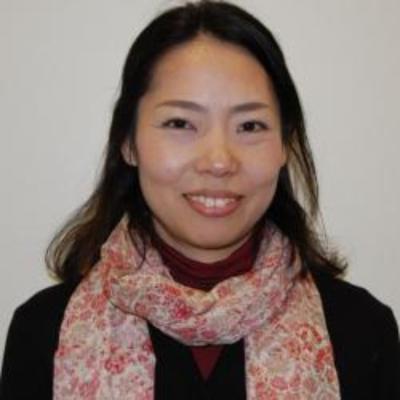1. Who had the greatest influence on your education and/or career path?
I’ve had three professors who influenced my career path. First, my world history teacher from high school, who taught me how history connects to the present-day events and issues as to how people view the world.
Second, my postmodern art history professor from my undergraduate studies in the U.S., who showed me how to appreciate and value the importance of diverse cultures. She taught me what it means and takes to really “learn,” but the time invested can be rewarded for a lifetime.
And third, one of my professors from the master’s program, who taught me to maintain a humble and respectful attitude to be a good teacher/researcher. She also showed me that engaging in teaching and research is an act of contributing to the society, in which we are responsible for making the world a better place.
2. What’s the goal of your research? What do you hope to change with it?
My research background is in theories of second-language acquisition and foreign language pedagogy. My interest is in learners’ learning process over time, particularly in the context of technology-mediated language learning. I want to understand how people engage in learning foreign languages and cultures and their learning experiences. My goal is to assist and support learners in learning foreign and additional languages and cultures more efficiently and with more pleasure.
One of the greatest aspects of my field is that research and theories are directly connected to teaching practices. For example, my research inspiration comes straight from my classroom teaching, as well as from my personal learning experiences. Thus, I hope that more research will be completed to advance the theories and enhance a science-based approach to teaching additional languages.
3. What do you enjoy most about your work?
As I love language-learning myself, I enjoy my work the most when I can pass on my knowledge and experience to students as language-learning can serve to see the world from a perspective other than one’s own, and value what other languages, histories, and cultures can offer to their life.
4. Why did you decide to teach at Georgia Tech, and what's the best part about working here?
Coming from Japan, I benefited so much from my own university experience in the U.S., where professors not only have a subject-matter expertise, but they are also extremely open-minded and supportive of one’s learning. The opportunity to work at Georgia Tech just came to me at the right moment, but I have always hoped to contribute to the younger generations with a quality education, because it will make a great impact on one’s life and the society.
The best part of working at Georgia Tech is the diversity of the School environment. This is true with the student body but also my colleagues in the Modern Languages who originate from different parts of the world, with various academic disciplines. I benefit much from the interdisciplinary approach. Yet, we share the same passion and the goal to work together to ensure the best education and future opportunities for our students.
5. What is a memorable moment from your time here?
I have worked on the development and teaching of online courses with my senior colleague, Dr. Masato Kikuchi, since 2003. I felt extremely rewarded when we were able to reach out to students who do not have access to the campus. Some students have taken my courses from across the ocean. I feel fortunate to be part of this project when I receive very positive voices from my online students. Also, I have been extremely grateful to have met students who are very engaging, generous, and kind.
6. What’s your favorite course to teach and why?
I have a special attachment to the Online Elementary Japanese I course (JAPN1001), as I have been spending nearly 20 years developing and teaching the course. With the development of technology, the quality of online learning, in general, has improved over years, but I feel as if there are many more ways to make the overall educational experience better.
The reason I feel passionate about this is that I see much potential in online learning, as it can provide more access of the education to people in the community and across the borders. A propagation of education is a very important mission for me because I believe this can lead to social justice and an equity of the community and the world.
7. Do you have any advice for Modern Languages students at Georgia Tech?
My advice for students is to believe in yourself and go explore the world!
8. When you're not working, what do you like to do?
My favorite thing to do outside work is to learn new languages! If I find time, I take language classes. I have regular tandem partners in multiple languages to brush up my foreign-language learning skills.
I also love traveling. I have been extremely fortunate to have traveled around the world and have lived in Europe in addition to growing up in Japan and having lived in the U.S. for half of my life. I enjoy immersing myself in multicultural and linguistic environments.
9. If you weren't doing this, what would you be doing?
I love exploring nature with my husband and enjoying plants and flowers. Besides that, I like cultural and creative activities like pottery making, drawing, sewing, watching films, and going to theaters. I also like trying out new recipes and sharing my cooking with my loved ones.

